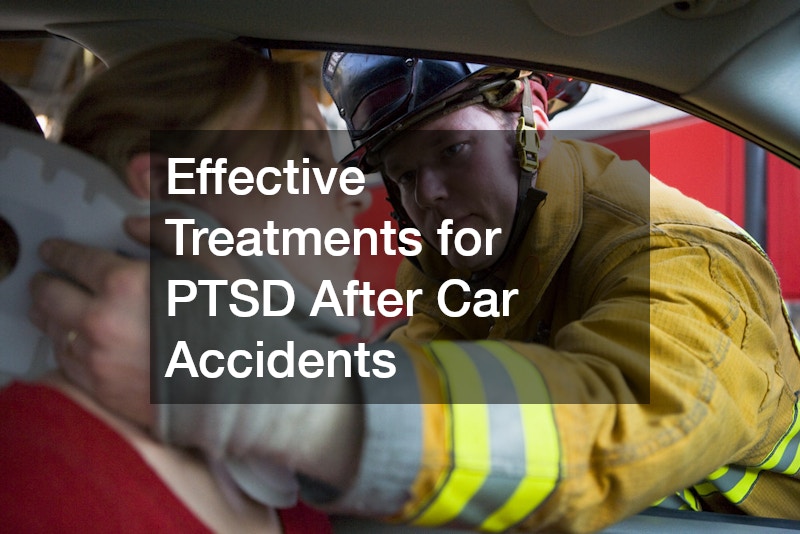Post-traumatic stress disorder (PTSD) is a significant concern for many individuals who have experienced a motor vehicle accident. The emotional and psychological impact of such events can be profound, with symptoms that can interfere with daily life and overall well-being. Understanding the symptoms, risk factors, and effective treatments for PTSD following a car accident is crucial for recovery.
Symptoms of PTSD
PTSD symptoms are often categorized into four main groups: intrusive thoughts, avoidance behaviors, hyperarousal, and negative cognitions.
Intrusive thoughts include distressing memories, nightmares, and flashbacks related to the accident. These thoughts can be so vivid that individuals feel as though they are reliving the traumatic event.
Avoidance behaviors involve steering clear of reminders of the accident, such as avoiding driving or being a passenger in a car. This can significantly impact one’s mobility and independence.
Hyperarousal is characterized by constant anxiety, difficulties with sleep, and an exaggerated startle response. Those affected may feel perpetually on edge, making it hard to relax or concentrate.
Negative cognitions refer to pervasive negative thoughts about oneself or the world. This can include self-blame, feelings of guilt, or a general sense of doom and insecurity.
Risk Factors for Developing PTSD
Several factors can increase the likelihood of developing PTSD after a car accident. One of the primary risk factors is the sense of powerlessness during the incident. Many individuals describe a feeling of helplessness, knowing that the accident was imminent but being unable to prevent it. This loss of control can exacerbate the traumatic response.
The severity of the accident and the presence of fatalities also play significant roles. Even in less severe accidents, the perception that one’s life or the life of a loved one was in danger can trigger a traumatic response. Additionally, the aftermath of the accident, including the response from emergency personnel and support from friends and family, can influence the development of PTSD. A quick, supportive, and understanding response can help mitigate the symptoms, while a lack of support can worsen them.
Effective Treatments for PTSD
There are several effective treatments for PTSD, which can help individuals recover and regain their sense of normalcy. These treatments include Eye Movement Desensitization and Reprocessing (EMDR), Cognitive Behavioral Therapy (CBT), and exposure therapy.
Eye Movement Desensitization and Reprocessing (EMDR) is a therapeutic approach that uses guided eye movements to assist individuals in processing and integrating traumatic memories. Studies have found that EMDR can significantly reduce PTSD symptoms, and neuroimaging research has revealed changes in brain activity after treatment.
Cognitive Behavioral Therapy (CBT) is another effective treatment that focuses on changing negative thought patterns and behaviors. CBT helps individuals challenge and reframe their negative cognitions, reducing feelings of guilt and self-blame.
Exposure therapy involves the gradual and controlled introduction of situations that trigger PTSD symptoms. This approach helps individuals lessen avoidance behaviors and face their fears in a managed setting. For instance, someone who avoids driving may collaborate with a therapist to slowly incorporate driving back into their routine.
In addition to these therapies, certain medications can be helpful in managing PTSD symptoms. Beta blockers, which are not addictive, can help lower blood pressure and reduce hyperarousal symptoms. Selective serotonin reuptake inhibitors (SSRIs), commonly used as antidepressants, can also alleviate anxiety and depressive symptoms associated with PTSD. In some cases, low doses of antipsychotic medications may be prescribed to help with severe symptoms like flashbacks and nightmares.
It is important to note that while these medications can be helpful, they should be used cautiously and under the guidance of a medical professional. Benzodiazepines, for example, are not recommended for treating PTSD due to their addictive nature and potential to worsen anxiety over time.
Seeking Help and Legal Support
If you or someone you care about is dealing with PTSD after a car accident, it’s essential to seek professional help. Therapy can offer the necessary tools to manage symptoms and support recovery. Furthermore, if the accident resulted from another party’s negligence, consulting a car accident lawyer can be advantageous. A car accident lawyer can guide you in understanding your legal rights and help you pursue compensation for medical expenses, therapy costs, and other damages.
In conclusion, while PTSD can be a challenging condition to navigate, there are effective treatments available. EMDR, CBT, exposure therapy, and appropriate medications can all play a role in recovery. Seeking therapy and legal support from a car accident lawyer can help ensure that you receive the care and compensation you need to move forward.
.


